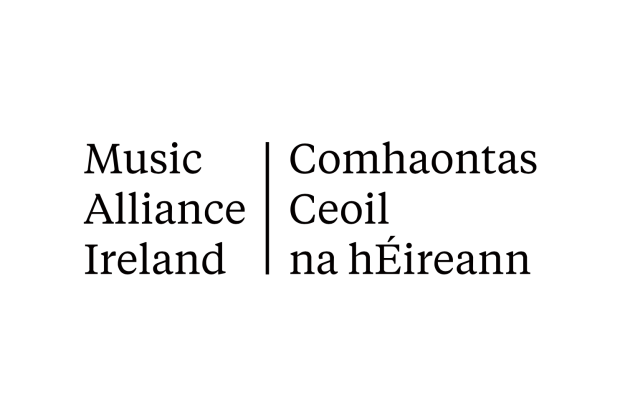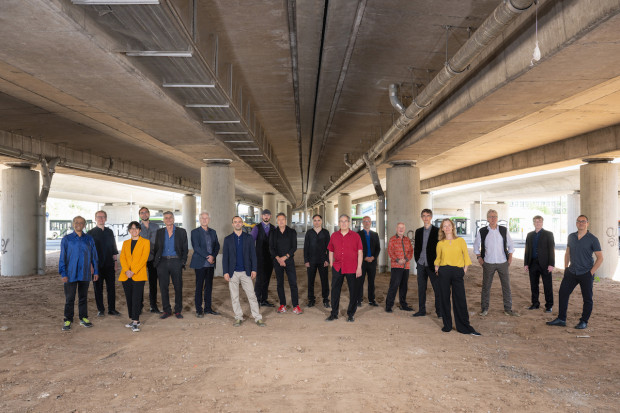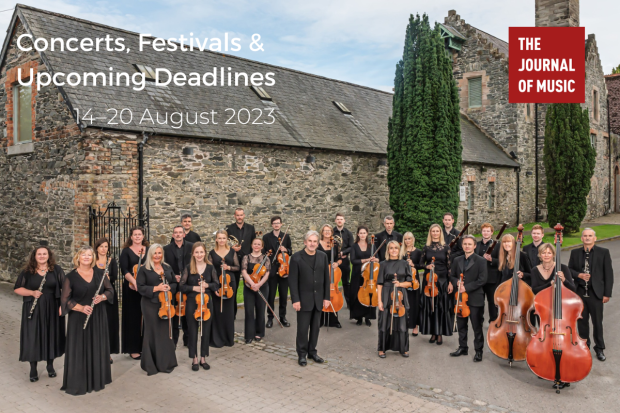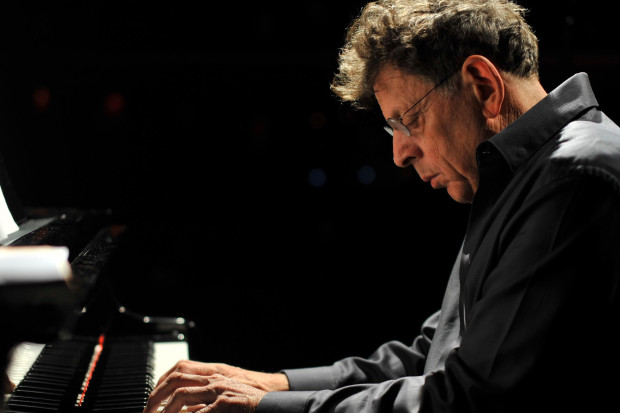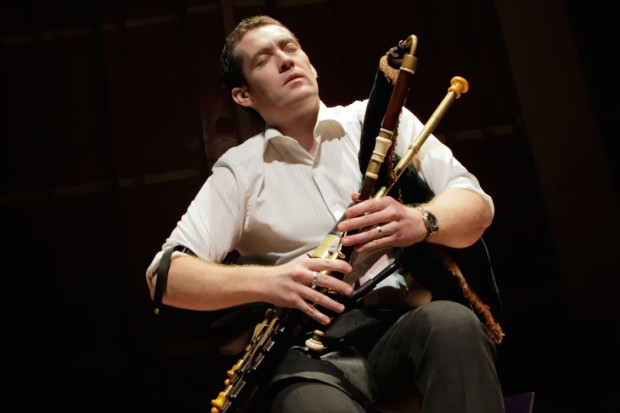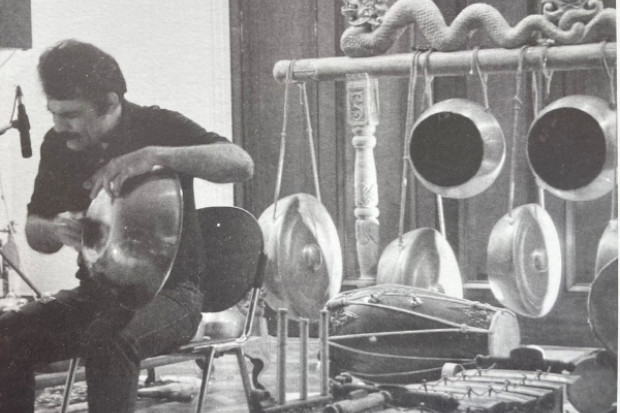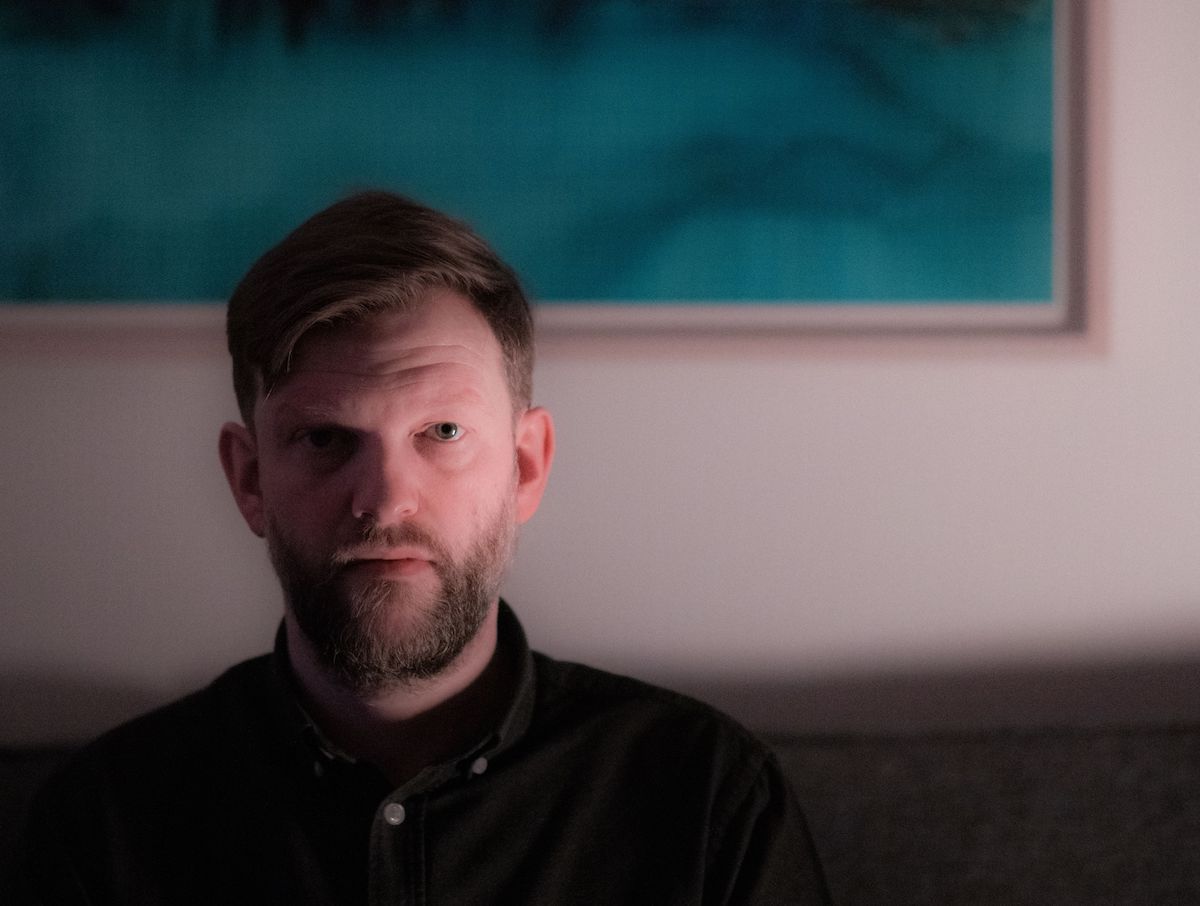
Garrett Sholdice (Photo: Néstor Romero Clemente)
Minor Melancholia
This latest release from the Ergodos label is devoted to the music of one of its founders, the composer Garrett Sholdice who turns 40 this year. The album contains music for solo piano and chamber music featuring string players from the Crash Ensemble (Diamanda La Berge Dramm, Larissa O’Grady, Ed Creedon and Kate Ellis) and the pianist Michael McHale with whom Sholdice has had a longstanding collaborative relationship.
The album is bookended by two pieces for solo piano performed by McHale. The opening piece Und weinen, und lächeln (2022) takes its title from Schubert’s song ‘Des Fischers Liebesglück’ (‘The fisherman’s luck in love’). The piece consists of single-note hocket figures that are spun into a stream of notes shared between both hands in the upper middle register of the piano. Although it relies on repetition, the irregular length of the patterns gives a sense of shifting perspective and the texture thins out just before the midpoint of the piece leaving a series of progressively sparser phrases.
Prelude No. 12 (2017) was premiered by McHale at last year’s New Music Dublin festival where it made quite an impression as an oasis of stillness in a programme of busy orchestral music. The effect transfers well on to the recording, which brings out the piece’s harmonic aspects more strongly as the overlapping resonances from the single notes are more clearly captured.
Indeed what emerges from listening to the more recent pieces on the album is Sholdice’s very definite sense of harmony – a kind of minor melancholia achieved by focusing on mild dissonances in limited pitch collections. St-Dunstan-in-the-East (2022) for piano and string quartet marks the outermost extent of this dissonance and while there is no shortage of semitonal clashes, their potency is tempered by a focus on timbral and registral combinations. Named after a church in London that was destroyed during World War II and now converted into a public garden, the piece gets through a variety of inventive textures and, for me, was the standout piece on the album. It also notably marks the only point where the volume rises above mezzoforte.
Movements from Berlin
Sholdice’s penchant for German titles is evident in the two-movement work for string quartet Das Blaue Licht (2013), written when he was living in Berlin. The first movement uses only pizzicato and like the piano piece Und weinen, und lächeln, it makes extensive use of hocket techniques, though here the rhythm at the beginning is much more irregular. A steady pulse gradually emerges and a quietly joyful, almost dance-like rhythm takes over before the texture breaks once again into irregular hocket patterns.
The second movement consists of a series of gently dissonant sonorities consisting of groups of pitches at close intervals often with a distant harmonic floating on top in the upper register. While pleasant, this soundworld of gentle, un-offensive dissonance is ubiquitous in the post-Feldman strain of new music. About two-thirds of the way through the piece, a simple melody emerges accompanied by solo pizzicato notes. Again, this makes for not unpleasant listening but it is a little underwhelming.
Gymel for viola and cello suffers from the same problem. It starts out with a simple minor melody in unison but soon the instruments diverge as the cello starts playing the same series of pitches at a slower speed. The instruments re-converge and diverge with variants of the same melody but again, there isn’t really enough variety to sustain the interest over the piece’s twelve-minute duration.
Lovers of quiet music will find much to like on this album and there are certainly moments of great beauty. Melody, both direct or as an indirect product of multiple lines, is a pervading concern and the resonant recordings foreground Sholdice’s sensitive ear for delicate timbral and harmonic sonorities. While there are no fireworks, this is music that is far from easy to play and the performances by McHale and the Crash musicians are delivered with unwavering intensity and concentration.
To purchase The Blue Light on limited edition CD or digital copy, visit https://ergodos.bandcamp.com.
Subscribe to our newsletter.
Click on the image below to listen.
Published on 7 June 2023
Adrian Smith is Lecturer in Musicology at TU Dublin Conservatoire.










